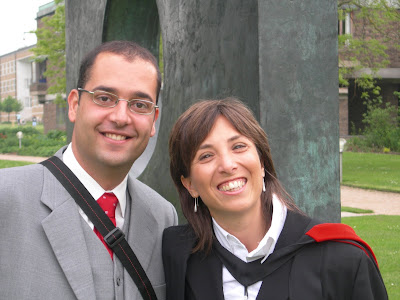
Querido Edu,
te hecho mucho de menos, me da un poco de verguenza hablar contigo en fronte a todos asi no voy a decir mucho mas, eras una persona maravillosa y el mundo sin ti es un lugar tan triste. Esta es la foto de mi graduaccion.
Un abbraccio forte forte a te e tutti quelli che ti hanno voluto davvero bene,
Aleida